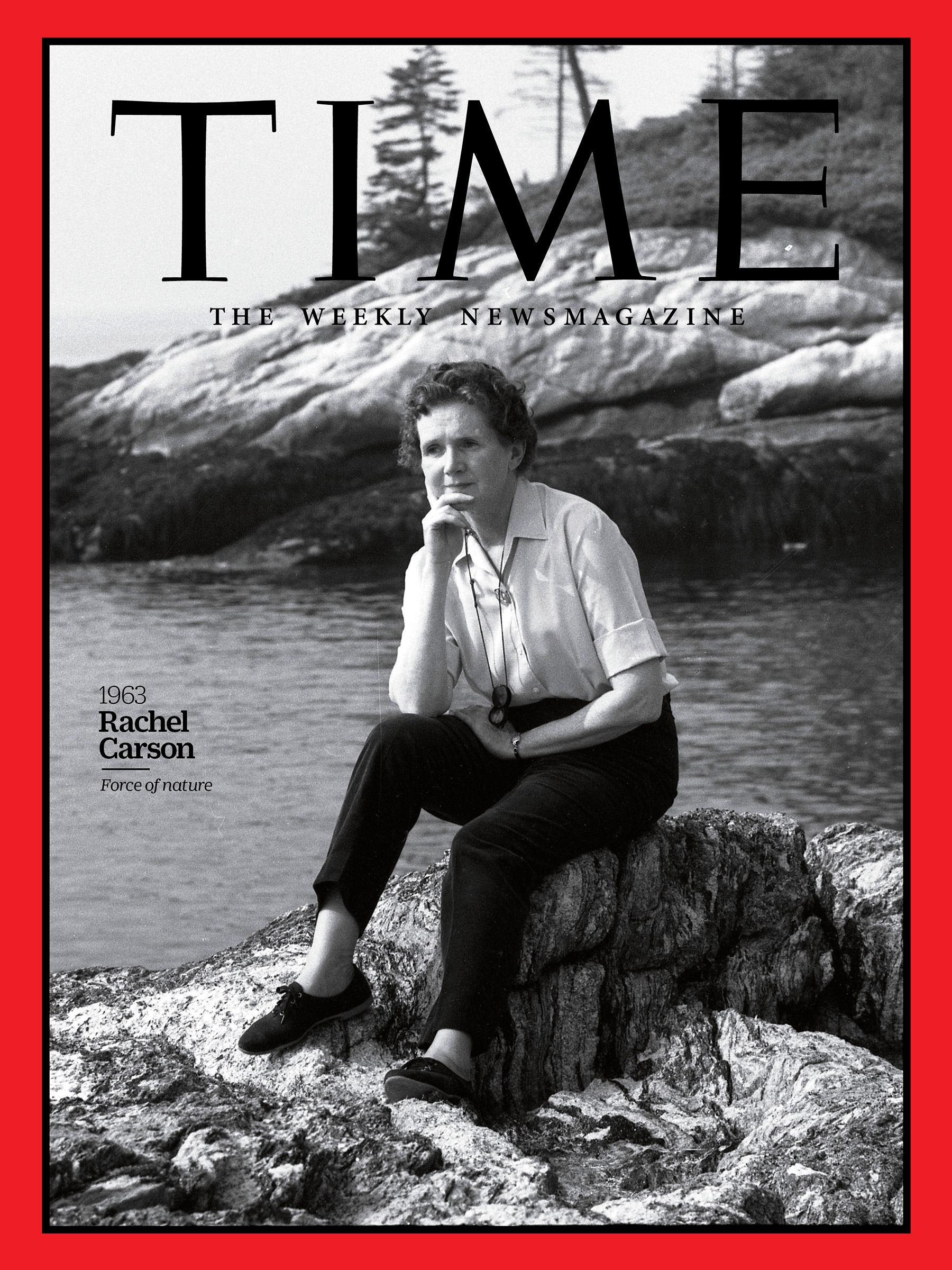There was a time when a book could change the world. Biologist and writer Rachel Carson’s early works about the ocean were besotted with life. But her fourth book, Silent Spring, was a searing indictment of synthetic pesticides—grim nerve agents for insects like DDT that she called “elixirs of death.” Published in September 1962, it likened the danger from pesticides to the threat from nuclear-weapons testing. Chemicals “are the sinister and little-recognized partners of radiation in changing the very nature of the world—the very nature of its life,” Carson told the nation in April 1963, in a CBS Reports television documentary. An investigation President Kennedy had ordered soon confirmed Carson’s claims.
As an editor for the Fish and Wildlife Service, Carson had lived a quiet life with her adopted son, her mother and a few cats. By the time of her death from breast cancer in 1964, at 56, she had set in motion a movement that produced Earth Day, the Environmental Protection Agency, a domestic ban on DDT and a transformation of how Americans see the world they inhabit. —William Souder
Souder is the author of On a Farther Shore: The Life and Legacy of Rachel Carson
This article is part of 100 Women of the Year, TIME’s list of the most influential women of the past century. Read more about the project, explore the 100 covers and sign up for our Inside TIME newsletter for more.
